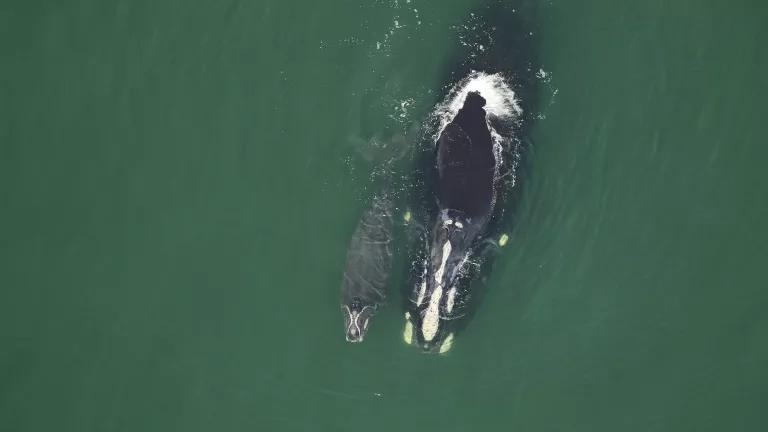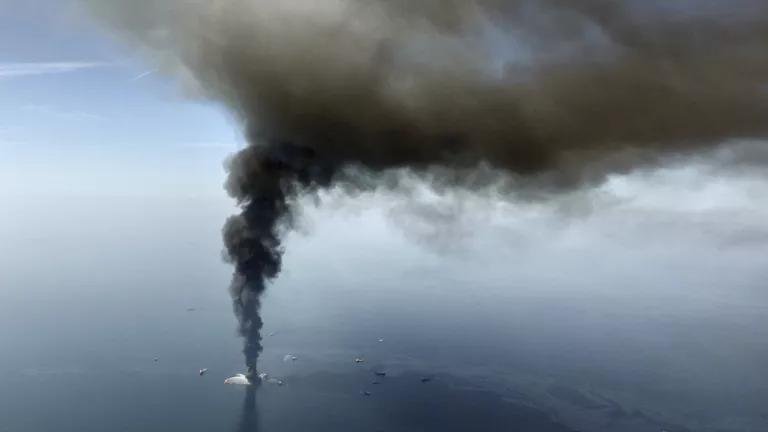Environmental Groups Ask Court to Block Harmful Seismic Blasting in the Atlantic

A first step toward offshore drilling, the blasts will put ocean life—from tiny zooplankton to the North Atlantic right whale—at risk.
Conservation groups, including NRDC, asked a federal court today to block any seismic airgun blasting in the Atlantic Ocean until their case against it can be fully heard in court. A means of deep sea oil exploration, “seismic blasting will cause harm to ocean life the moment it begins,” says Michael Jasny, director of NRDC’s Marine Mammal Protection Project. “We’re asking the court to prevent any seismic activity from going forward while it considers our claims that the Trump administration is violating multiple federal environmental laws.”
The case has been combined with another lawsuit brought by a group of more than a dozen South Carolina coastal communities and 10 East Coast attorneys general have intervened in the merged case. The lawsuit argues that the National Marine Fisheries Service violated three bedrock environmental laws—the Marine Mammal Protection Act, the Endangered Species Act, and the National Environmental Policy Act—when it issued seismic permits to five oil companies last November.
The blasts are as loud as dynamite and fired as often as every 10 seconds for weeks, sometimes months. Blanketing the ocean, the noise disrupts the vital behaviors of marine life, including finding food, selecting mates, avoiding predators, and navigating. It’s also known to injure and kill invertebrates, displace fish, and put commercial fisheries at risk.
The federal government falsely concluded that only a “small number” of whales and dolphins would be impacted—but the National Marine Fisheries Service has authorized companies to harm hundreds of thousands of whales and dolphins. The blasts would also put the critically endangered North Atlantic right whale—of which there are only about 400 right whales remaining—at even great risk for extinction. “Bombarding endangered whales with deafening blasts to search for dirty oil is indefensible,” says Kristen Monsell, a legal director with the Center for Biological Diversity, one of the organizations involved bringing the case.
The Obama administration had previously denied permits for airgun blasting in the Atlantic, agreeing that it posed “significant, long-lasting, and widespread impacts.” But President Trump reversed course and issued an executive order in April 2017 that allowed offshore drilling in public coastal waters.
“We can’t let this dangerous activity cause a species to go extinct just so the oil industry can open our oceans to offshore drilling,” says Diane Hoskins, campaign director at Oceana, another organization involved in the case. “Every East Coast governor and over 90 percent of coastal municipalities in the blast zone are opposed to opening our coast to drilling—this is states versus President Trump”



